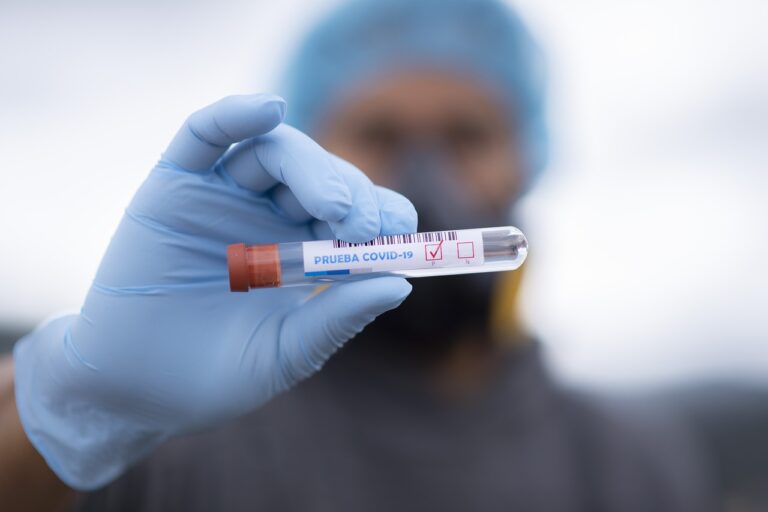Vaccination Myths: Separating Fact from Fiction
11xplay, Online Cricket Id: One common misconception about vaccinations is that they cause autism. Despite numerous studies and research studies, there is no scientific evidence to support this claim. Vaccines undergo rigorous testing and are continually monitored for safety, with autism not being a side effect of vaccination.
Another misconception is that getting vaccinated makes you sick. In reality, vaccines are designed to stimulate the immune system to create an immune response without causing the disease itself. It is normal to experience mild side effects like soreness at the injection site or a low-grade fever after vaccination, but these symptoms are far less severe than contracting the actual disease.
History of Vaccines and Their Impact
Vaccines have played a significant role in shaping public health throughout history. The concept of immunization dates back centuries, with early evidence of variolation practices in ancient China and India. It was not until the 18th century that Edward Jenner introduced the smallpox vaccine, marking a pivotal moment in the history of vaccines. The success of the smallpox vaccine paved the way for further advancements in immunization, leading to the development of vaccines for diseases such as polio, measles, and influenza.
The impact of vaccines on global health cannot be overstated. Vaccination campaigns have led to the eradication of smallpox, the near elimination of diseases like polio, and significant reductions in mortality rates worldwide. With the ongoing efforts to develop vaccines for emerging infectious diseases, such as COVID-19, the importance of vaccination as a public health measure continues to be underscored. Through continued research and advocacy, vaccines remain a crucial tool in preventing the spread of infectious diseases and safeguarding the well-being of populations across the globe.
• Vaccines have played a significant role in shaping public health throughout history.
• Early evidence of variolation practices can be traced back to ancient China and India.
• Edward Jenner introduced the smallpox vaccine in the 18th century, marking a pivotal moment in vaccine history.
• The success of the smallpox vaccine paved the way for further advancements in immunization, leading to vaccines for diseases such as polio, measles, and influenza.
The impact of vaccines on global health cannot be overstated.
– Vaccination campaigns have led to the eradication of smallpox
– Near elimination of diseases like polio
– Significant reductions in mortality rates worldwide
With ongoing efforts to develop vaccines for emerging infectious diseases like COVID-19,
the importance of vaccination as a public health measure continues to be underscored.
– Continued research and advocacy are crucial
– Vaccines remain a tool in preventing spread of infectious diseases
– Safeguarding well-being across populations is key
The Science behind Vaccinations
Vaccinations work by introducing a weakened or inactive form of a pathogen into the body. This prompts the immune system to produce antibodies to fight off the intruder. These antibodies remain in the body, ready to combat the real pathogen if it ever enters the system. This process is essential in building immunity and protecting individuals from contracting the disease in the future.
Furthermore, vaccines are thoroughly tested for safety and efficacy before being approved for public use. Rigorous clinical trials are conducted to assess how well the vaccine works and to identify any potential side effects. The scientific community continually monitors the safety of vaccines through post-market surveillance to ensure their ongoing effectiveness and safety. This commitment to scientific research and data-driven decisions is crucial in maintaining the high standards of vaccine development and administration.
Are vaccines safe?
Yes, vaccines are rigorously tested for safety before they are approved for use by regulatory agencies.
Do vaccines cause autism?
No, numerous studies have shown that there is no link between vaccines and autism.
Can vaccines give you the disease they are supposed to prevent?
No, vaccines are made with either weakened or inactivated forms of the virus or bacteria, so they cannot give you the disease.
Do vaccines contain harmful chemicals?
Vaccines may contain small amounts of chemicals like formaldehyde or aluminum, but these are at levels considered safe by regulatory agencies.
Can I get sick from the flu shot?
The flu shot contains an inactivated virus, so it cannot give you the flu. However, some people may experience mild side effects like soreness at the injection site.
Do vaccines have long-term side effects?
Vaccines are continually monitored for safety, and long-term side effects are extremely rare. The benefits of vaccination far outweigh the risks.







